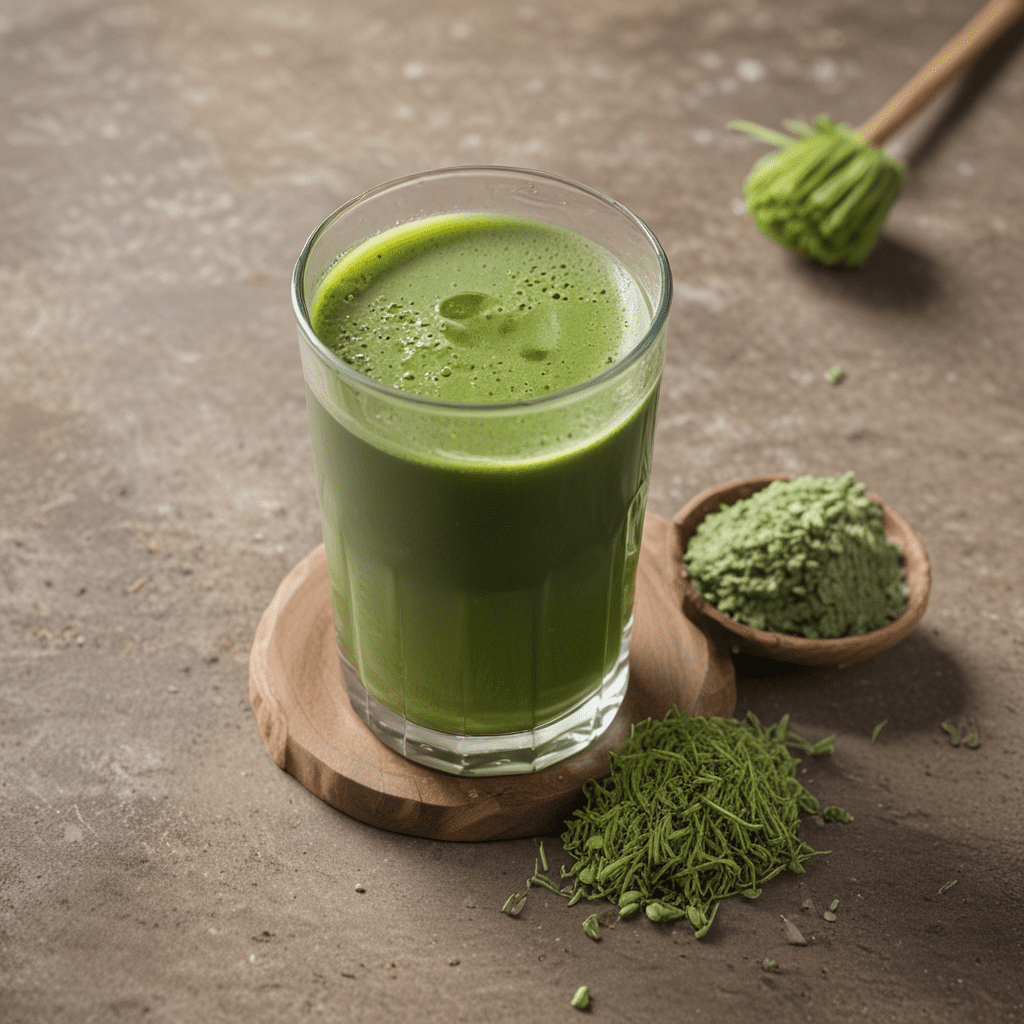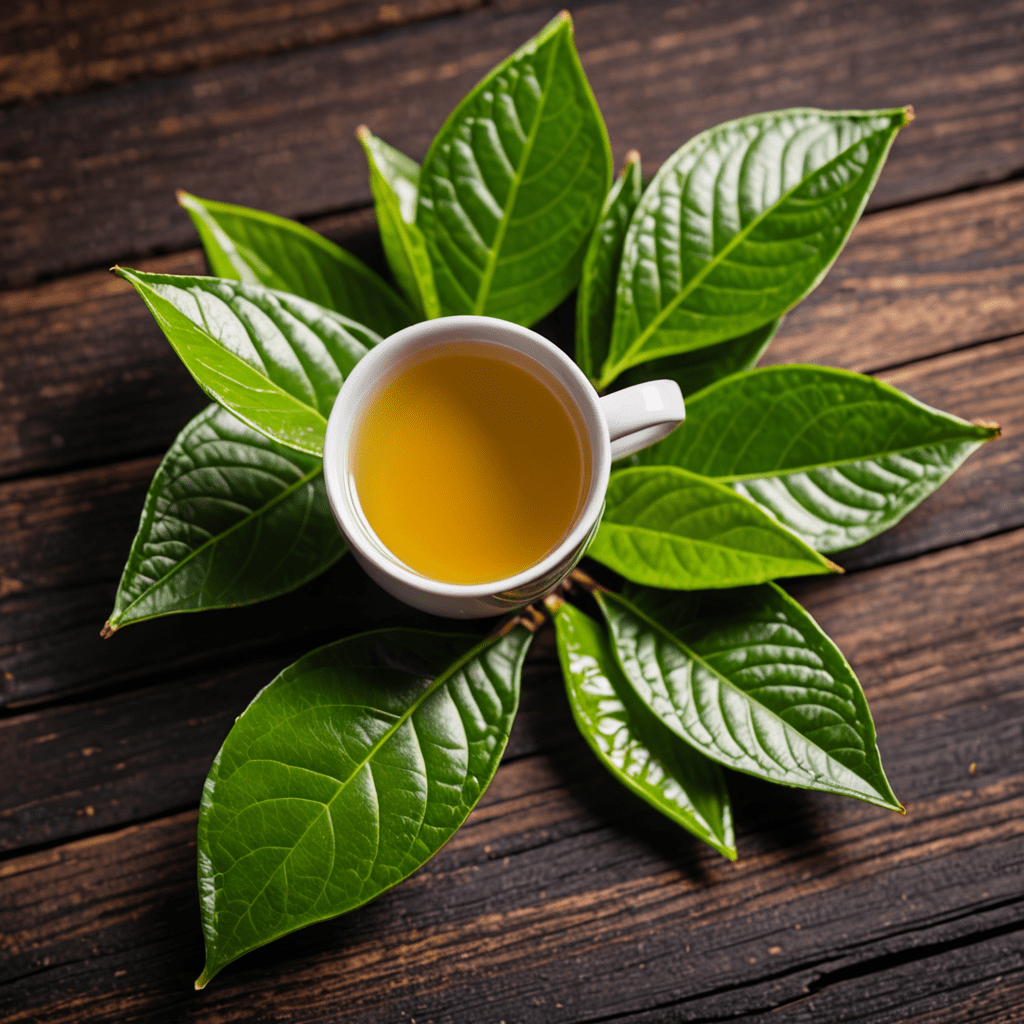
Introduction: The Potential of Matcha for Liver Detoxification
Matcha, a revered green tea powder, has gained prominence for its exceptional health benefits. Among its remarkable properties is its potential to support liver detoxification, a vital process that ensures the elimination of harmful substances from the body.
Understanding the Liver's Role in Detoxification
The liver, the largest internal organ, plays a crucial role in detoxification. It acts as a filter, processing nutrients and removing toxins from the bloodstream. Through various biochemical reactions, the liver converts these harmful substances into water-soluble forms, making them easier to excrete through urine and feces.
Matcha's Antioxidant Properties: Protecting Liver Cells
Matcha is a rich source of antioxidants, particularly catechins. These potent compounds neutralize harmful free radicals, which are unstable molecules that can damage liver cells and contribute to oxidative stress. By scavenging these free radicals, matcha helps protect the liver from damage, supporting its overall health and function.
Chlorophyll's Contribution to Liver Cleansing
Chlorophyll, the green pigment in matcha, also plays a role in liver detoxification. It has been shown to bind to toxins in the digestive tract, preventing their absorption into the bloodstream. Additionally, chlorophyll has mild diuretic effects, promoting the elimination of toxins through urine.
Catechins: Plant Compounds with Detoxifying Abilities
Catechins, a group of polyphenols abundant in matcha, have been extensively studied for their detoxifying properties. EGCG (epigallocatechin gallate), the most prevalent catechin in matcha, has been found to protect the liver from damage caused by toxins, such as alcohol and environmental pollutants.
Boosting Metabolism with Matcha: Enhancing Liver Function
Matcha contains caffeine, a natural stimulant that can boost metabolism. Increased metabolism helps the liver process and eliminate toxins more efficiently, further supporting its detoxification function.
Matcha's Anti-Inflammatory Effects: Supporting Liver Health
Chronic inflammation can impair liver function and contribute to liver disease. Matcha's anti-inflammatory properties help reduce inflammation in the liver, promoting its optimal health and function.
Integrating Matcha into a Liver-Detoxifying Diet
To maximize matcha's liver-supporting benefits, consider incorporating it into a healthy diet that includes plenty of fruits, vegetables, and whole grains. These nutrient-rich foods provide essential vitamins and minerals that further enhance liver function.
Precautions and Considerations for Matcha Consumption
While matcha is generally safe for most people, excessive consumption may lead to increased caffeine intake, which can cause side effects such as anxiety, insomnia, and headaches. Individuals with liver health concerns should consult a healthcare professional before consuming matcha.
Conclusion: Matcha's Promise as a Liver-Supporting Beverage
Matcha's unique combination of antioxidants, chlorophyll, and catechins makes it a promising beverage for supporting liver detoxification. By protecting liver cells from damage, boosting metabolism, and reducing inflammation, matcha can help maintain the liver's optimal function and overall health.
FAQs
Q: How much matcha should I consume daily?
A: The recommended daily intake of matcha varies depending on individual caffeine tolerance. Generally, 1-2 cups per day is considered safe for most people.
Q: Can matcha replace my regular tea?
A: Matcha is a concentrated form of green tea, so it's not a direct replacement. However, you can incorporate matcha into your regular tea routine by adding it to your favorite teas or enjoying it as a separate beverage.
Q: Is matcha suitable for all types of liver conditions?
A: While matcha may support liver health, it's not a substitute for medical treatment. Individuals with specific liver conditions should consult a healthcare professional before consuming matcha.


